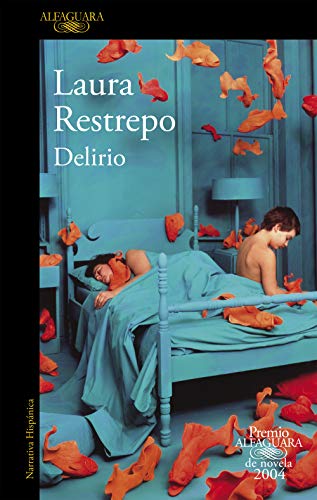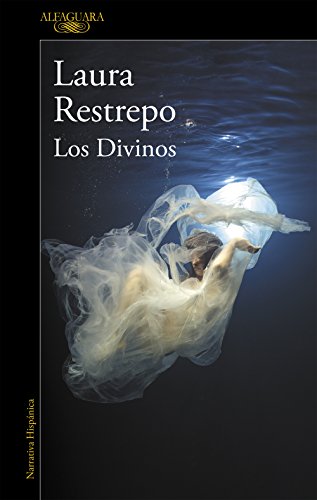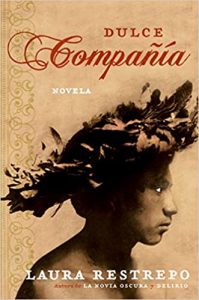Since she began publishing her first books, the Colombian writer Laura Restrepo always manifested as a writer of quiet books, of leisurely literature, with that taste or need to fill himself with experiences and new ideas with which to approach his books of great invoice in the strictly literary or by the subject matter addressed. Because the Laura Restrepo thing is also a direct commitment of the letters, of the books with the most painful reality or the crudest circumstances.
She did not change that vocation of writing great reserve once her name began to make a space in Hispanic literature, especially with recognitions such as the Alfaguara de Novela 2004. And until today, at which time there are already those who recognize her as a worthy successor of the very Gabriel García Márquez.
The usual setting for Laura Restrepo's novels is the deepest Colombia, with its lights and shadows. And that is where the author is able to present us with a mysterious plot or an episode that reflects a horrifying reality, always with the intimate brilliance of someone who seeks to delve into the particularities of the soul exposed to the most intense contingencies.
Top 3 recommended novels by Laura Restrepo
Delirium
The successful recognition Afaguara de novela 2004 allowed us to enjoy a novel with a living plot under whose plot we delve into a vast inner world governed by contradictions, guilt and secrets.
Life does not smile at Aguilar. His modest dreams of dedicating himself to teaching were swept away by necessity and urgency. In a way, his more familiar appearance makes up for the feeling of defeat. His children and his wife are the defensive bastion against sadness.
But after a trip, Aguilar finds his wife, Agustina, in a fatal state of madness. The very circumstances in which he finds her push him to think of infidelity as an added dilemma. But the main thing is to try to get her back, to find the cause of her sudden dementia.
The intervention of new characters give the suspense an intimate complement about Agustina. Perhaps the reasons have not been other than the emergence of secrets and guilt. Feigned happiness can end up drifting into an abyss of sadness.
But the author does not let the story end in absolute fatality. Despite the recognition of the unfathomable spaces of the soul, as the novel ends, that necessary point of light is discovered that can serve as a guide to survive everything.
The divine
An intense narrative about some unfortunate events. The appearance of the body of a girl floating in the waters of a river is a fact macabre enough to think of true psychopaths capable of abusing a defenseless neighbor to the very death in a true demonstration of perversion and evil.
Starting a fiction that seeks explanations beyond the rugged reality or that runs increasingly frequent red lines in almost every social environment in our world, would seem a difficult mission for this Colombian author.
But in the end, the idea of responsibility, of the commitment of literature to the most repulsive facts of which we are capable as human beings, must have weighed more.
Because whether we like it or not, the girl's murderers were alike, only deranged and psychotic to the worst extreme. If Laura also tells us that the murderers can be a group of young people of a high social level, capable of subjecting a girl to all kinds of humiliations to end up killing her, the matter is still darker.
The homicide then becomes an action of superiority, of the false belief that the least favored are expendable beings at the whim of their most unhealthy drives.
Recreating everything must be hard, trying to represent the most wicked characters of a novel exported directly from reality must have its one, but the author's commitment faced everything. His intention to raise the cards and present facts towards a profound exercise of retraining justify this story.
A real crime that shook an entire society. An allegation against feminicide, by one of the most important authors in Spanish today. The body of a girl is found floating in the water in what appears to be a ritual.
At the bottom of this episode is the superficial world of rich and successful young people who have maintained an evil brotherhood since childhood and that contrasts with that of the poor victim, a survivor of the violence in their place of origin.
Laura Restrepo puts her good literary work at the service of the cause of femicide, reaching heights of deepening in any reader who faces that crude reality turned into a novel but with the constant evocation that all this can happen out there ...
Sweet company
Surely we find the most international work of the author. The narrative proposal starts from a mysterious and angelic apparition in a neighborhood of Bogotá. A journalist from the pink press goes there to cover the matter and offer entertainment to readers from neighborhoods that are very different from those lares.
The symbols of this novel are shocking. A child with a truly angelic face awakens total veneration among the people of those places where life is hardly worth anything and yet faith is capable of transforming the most wicked souls into new converts of humanity.
Faced with the journalist's frivolity, the overflowing sense of humanity of that neighborhood unfolds, with its strong contradictions, with its violence typical of beasts, with fatalism as a destiny and defeatism as an emblem.
Probably all those fascinated beings, capable of believing in a God in charge of sending an angel there, end up gathering more real sense of life than the human remains hidden behind opulence and the material ...



